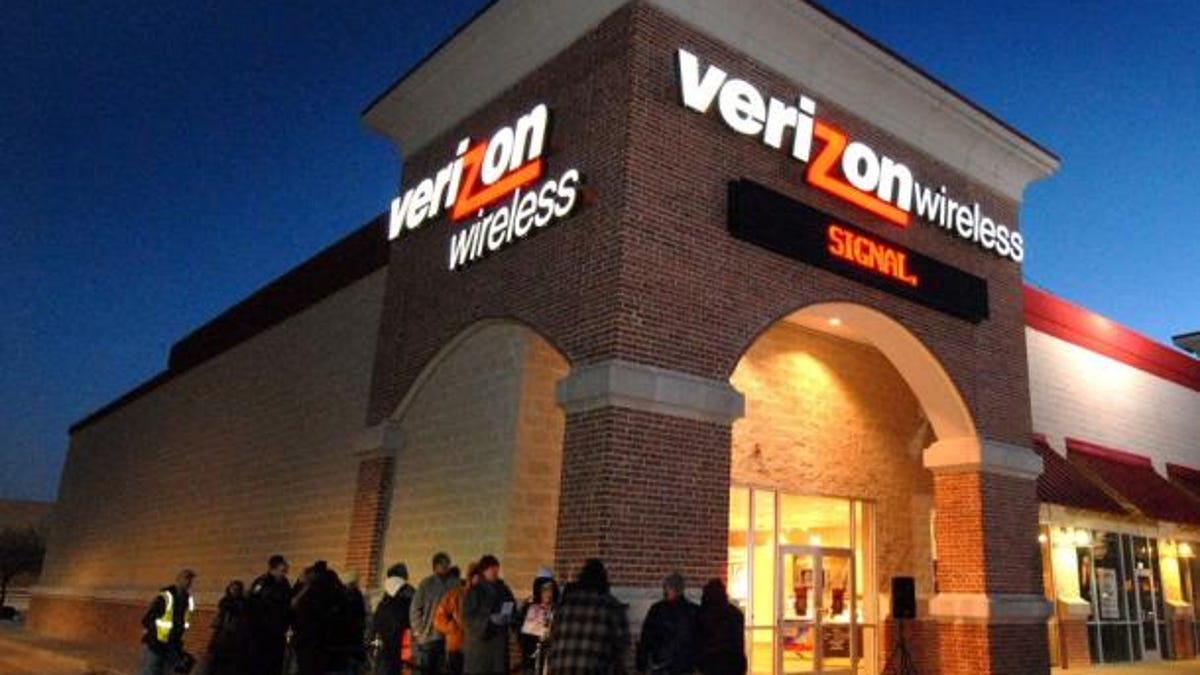Verizon posts $2.23B profit, adds 1.1M wireless connections
While its customer growth has slowed dramatically from a year ago, the number of new customers the carrier boasts likely compares favorably to its competitors.

Verizon managed to keep the customer growth flowing in the third quarter despite increased pressure from the likes of T-Mobile.
The New York telecommunications giant reported net income attributable to Verizon (which excludes the stake in Verizon Wireless that partner Vodafone owns) of $2.23 billion, or 78 cents a share. In the year-earlier period, it posted a profit of $1.59 billion, or 56 cents a share. Excluding one-time items, Verizon's adjusted earnings were 77 cents a share.
Revenue rose 4.4 percent to $30.28 billion.
Analysts, on average, expected Verizon to post earnings of 74 cents a share and revenue of $30.16 billion.
Verizon Wireless added 1.1 million net retail connections, including 927,000 net retail post-paid customers, or subscribers who signed a long-term wireless contract. It ended the period with 101.2 million retail connections, which include any account with a wireless subscription, whether that's a connected machine or tablet, and 95.2 million retail post-paid connections. While the number likely stacks up well with the competition, it also represents a 39.6 percent decline from a year ago.
Verizon activated 7.6 million smartphones in the period, with 29 percent new to the carrier. In total, Verizon activated 10.2 million devices in the period. Chief Financial Officer Fran Shammo said that 51 percent, or roughly 3.9 million units, were made up of iPhones. That's flat from the second quarter but up from the 3.1 million iPhones sold a year ago.
The company did see an uptick in its retail post-paid turnover rate, which rose 6 basis points to 0.97 percent. The retail post-paid average revenue per account increased 7.1 percent from a year ago to $155.74.
Revenue from the wireless business rose 7.2 percent to $20.4 billion.
The wireless industry has gotten more competitive in recent quarters, with T-Mobile making its strongest push in years to win back customers, and Sprint flush with resources from the takeover by Japanese carrier SoftBank. The latest studies have AT&T either right behind or right ahead in terms of network reliability. Yet Verizon has showed a continuing ability to grow through this period.
Shammo, speaking on a conference call on Thursday, admitted that Verizon Wireless was losing customers to the "lower end price plans of our competitors," but insisted the company continued to take market share. He added he expects Verizon's customer growth results to top all of its rivals in the period.
The wireless part of Verizon remains the fastest-growing segment. In September, Verizon agreed to pay Vodafone $130 billion for the stake in Verizon Wireless that it didn't own. Once closed, the deal will give Verizon full ownership of the wireless business.
The wireline business, meanwhile, saw a rise in consumer revenue, having added 173,000 Fios Internet connections and 135,000 Fios video connections. The company had a total of 5.9 million Fios Internet and 5.2 million Fios Video connections at the end of the quarter.
Global business revenue fell 3 percent as it continues to be a sore spot with the company.
Updated at 6:44 a.m. PT: to include comments from the Verizon CFO.

